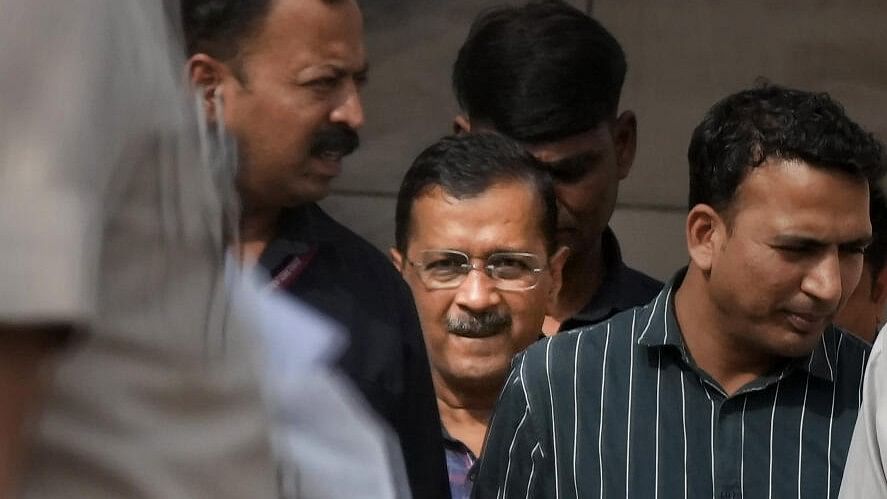
Delhi Chief Minister and AAP convenor Arvind Kejriwal comes out of the Rouse Avenue Court.
Credit: PTI File Photo
New Delhi: The Delhi High Court on Wednesday reserved its verdict on a petition by Chief Minister Arvind Kejriwal challenging his arrest by the Enforcement Directorate in a money-laundering case linked to the alleged excise policy scam.
"I am going to reserve judgement," said Justice Swarana Kanta Sharma after hearing the senior counsel appearing for the AAP leader as well as the agency.
The AAP national convener, who arrested by the ED on March 21, questioned the "timing" of his arrest and said it was in contravention of the basic structure of the Constitution, including free and fair elections and level playing field.
Kejriwal, currently in judicial custody, was represented by senior advocate Abhishek Singhvi.
The agency, represented by Additional Solicitor General S V Raju, opposed the petition and said the offence of money laundering was prima facie made out in this case and at present, the investigation against the petitioner was at a nascent stage.
The ASG denied the allegations of bias levelled against the ED, asserting their case is based on evidence and "criminals are supposed to be arrested and put in jail".
ED's senior counsel also said the petition has only assailed the first remand order passed against the petitioner, which sent him to the agency's custody till March 28, and not the subsequent orders.
The ED had arrested Kejriwal on March 21 after the high court refused to grant him protection from coercive action by the federal anti-money laundering agency.
The case pertains to the alleged corruption and money laundering in formulating and executing the Delhi government's excise policy for 2021-22 that was later scrapped.
Kejriwal was sent to judicial custody in the case on April 1 after he was produced in the trial court after expiry of ED custody.
On March 27, the court had refused to grant interim relief to Kejriwal, saying the matter raised important issues that cannot be "summarily" decided without seeking the agency's stand and had asked ED to file its reply to the challenge to his arrest and the subsequent remand to the ED's custody.